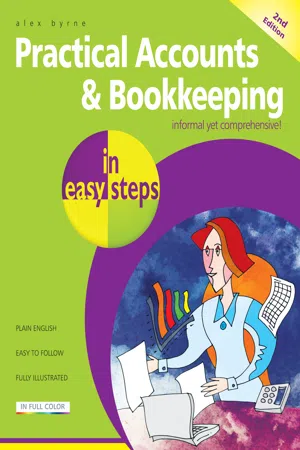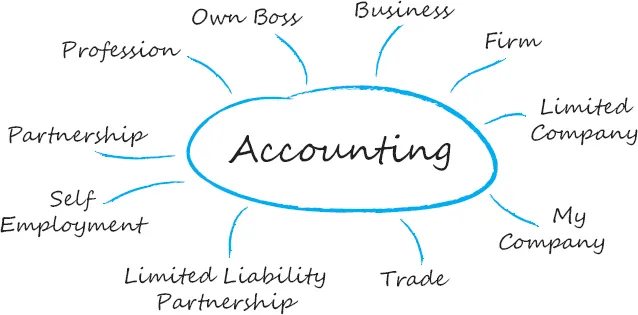![]()
You will be surprised how often you might need your business accounts
Business Accounts
What are Accounts?
Does a Business Need an Accountant?
Summary
Business Accounts
Businesses can be sole traders, partnerships, companies or limited liability partnerships.
•A SOLE TRADER is a self-employed individual who is personally financially responsible if things go wrong, e.g. if the business cannot pay its debts and taxes, the individual’s home or other assets may be at risk.
•A PARTNERSHIP is more than one self-employed person working together to make a profit and sharing everything on an agreed split. Each partner is personally responsible for all debts run up by the partnership as a whole, except for tax debts (individuals are responsible for their own tax debts). Again, their homes or other assets may be at risk.
•A LIMITED COMPANY is a separate legal structure where the liability of owners of the business is limited to the amount of their shares. Any legal action has to be against the Company, not the shareholders, and the shareholders’ personal assets are often safe.
•A LIMITED LIABILITY PARTNERSHIP (LLP) has many of the features of a normal partnership – but it is also like a limited company in that members in an LLP cannot usually lose more than they invest.
What a limited company can or cannot do is set out in the Articles of Association which are produced when a company is registered. The Articles are commonly very wide ranging and it is unlikely that the activities of the company will be restricted by them. However, all company directors should know what they say.
Shareholder Directors of limited companies and members of LLPs can be held responsible for the debts of limited companies/LLPs if they are guilty of fraud or wrongful trading (knowing they traded while unable to pay the debts of the business as they become due).
Running your business as a Limited Company is the most common way of protecting your personal assets.
“Business” is the same as “trade”. Being “self-employed” means you are your own boss and answer only to yourself. The word “firm” is often used to describe a partnership. The expression “my company” is commonly used to mean any business whether a company or a sole trader or partnership.
Banks and other lenders may insist that directors of limited companies provide personal guarantees for loans to the company so that if the company goes bust, the directors still have to pay the loans back.
You may hear the expression “profession” which describes people who do jobs which need special training and skill and often involve a high level of education, such as doctors or lawyers. Professional people may be self-employed as sole traders (for example as Consultants) or be Limited Companies or Limited Liability Partnerships, although sometimes the rules of their governing organisation prevent them being anything other than sole traders.
However you run your business, you need to prepare accounts.
What are Accounts?
Accounts are a summary of the business financial activities for a period of time, commonly 12 months. They can also be referred to as financial statements.
Why does a business need accounts?
•To know how the business is doing…
Why not just look at how much money you have in the bank?
The bank balance does not show you who owes you and who you owe.
For example, say you have a warehouse selling clothes to shops and other retailers and you sell £58,000 worth of clothes, on credit (i.e. customers do not pay for them when they take them but agree to pay later), so your Sales are £58,000.
You owe your suppliers, who you bought the clothes from, £16,000, so purchases are £16,000.
You have made a profit of £42,000 (Goods sold £58,000 less goods purchased £16,000):
| | £ |
Clothes sold on credit | (Sales) | 58000 |
Clothes bought on credit | (Purchases) | 16000 |
| Profit | 42000 |
but you have no money in your bank account:
| £ |
Money received for Sales and paid into the bank | 0 |
Money paid out of the bank for Purchases | 0 |
Bank transactions | None |
Money in bank | 0 |
The bank account does not show any of these transactions because they are not yet paid for, so relying on your bank account and the bank balance alone would not help you see how the business was doing at all.
•To raise money for the business, e.g. bank loan/overdraft
The bank will ask you for your latest accounts to see if you can afford to pay the loan/overdraft back, as well as the interest on the loan. People often complain that banks offer loans to people who already have money, e.g. savings, but are not so keen to lend businesses money when they first start out or want to expand. In other words, the bank wants a safe bet that its loan will be repaid.
Get your accounts done as soon as possible so they are available when you need them and so the figures are as up-to-date as they can be, and therefore most u...






